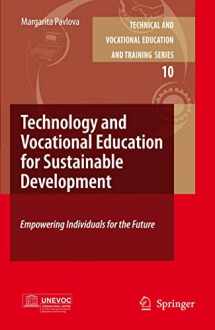
Technology and Vocational Education for Sustainable Development: Empowering Individuals for the Future (Technical and Vocational Education and Training: Issues, Concerns and Prospects, 10)
Book details
Summary
Description
Empowerment is the overarching idea used in this book. The term has a variety of meanings in different sociocultural and political contexts, including “self-strength, control, self-power, self-reliance, own choice, life of dignity in accordance with one’s values, capable of fighting for one’s rights, independence, own decision making, being free, awakening, and capability” (The World Bank, 2002, p. 10). However, the World Bank report observed that most definitions focus on issues of “gaining power and control over decisions and resources that determine the quality of one’s life” (p. 10). This interpretation of empowerment provides a useful starting point for the development of the series of interconnected arguments explored here. Establishment of the basis for understanding, identifying and developing strategies through education necessary for individuals to be able to make choices that inf- ence the quality of their lives is the main aim of this book. There are a number of assumptions and boundaries that frame this analysis. First, the book focuses on “agents”; however, empowerment is often conceptualised in terms of relationships between agency and structure (e. g. , Alsop, Bertelsen, & H- land, 2006). Agency could be defined as “an actor’s or group’s ability to make purposeful choices – that is, the actor is able to envisage and purposively choose options” (p. 11).


We would LOVE it if you could help us and other readers by reviewing the book
Book review



